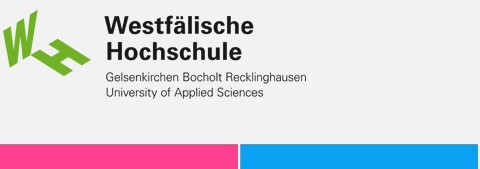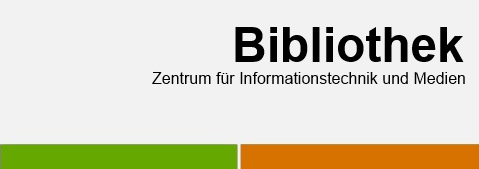Filtern
Dokumenttyp
- Wissenschaftlicher Artikel (13)
- Konferenzveröffentlichung (10)
- Dissertation (1)
- Bericht (1)
Schlagworte
- Artificial Intelligence (1)
- Autonomous Agents (1)
- Cookie <Internet> (1)
- Datenschutz (1)
- MITRE (1)
- Machine Learning (1)
- Multi-Agent System (1)
- OSINT (1)
- Objektverfolgung (1)
- Online-Werbung (1)
Institut
Web advertisements are the primary financial source for many online services, but also for cybercriminals. Successful ad campaigns rely on good online profiles of their potential customers. The financial potentials of displaying ads have led to the rise of malware that injects or replaces ads on websites, in particular, so-called adware. This development leads to always further optimized and customized advertising. For these customization's, various tracking methods are used. However, only sparse work has gone into privacy issues emerging from adware. In this paper, we investigate the tracking capabilities and related privacy implications of adware and potentially unwanted programs (PUPs). Therefore, we developed a framework that allows us to analyze any network communication of the Firefox browser on the application level to circumvent encryption like TLS. We use this to dynamically analyze the communication streams of over 16,000 adware or potentially unwanted programs samples that tamper with the users' browser session. Our results indicate that roughly 37% of the requests issued by the analyzed samples contain private information and are accordingly able to track users. Additionally, we analyze which tracking techniques and services are used.
In diesem Artikel wird ein Alert-System für das Online-Banking vorgestellt, welches das Schutzniveau im Kontext von Social-Engineering-Angriffen sowohl clientseitig als auch serverseitig erhöhen soll. Hierfür wird durch das Alert-System ein kontinuierliches Lagebild über die aktuelle Gefahrenlage beim Online-Banking erstellt. Bei konkretem Bedarf wird der Nutzer punktuell vor aktuellen Betrugsmaschen gewarnt und zielgerichtet über Schutzvorkehrungen und Handlungsempfehlungen informiert. Für die Berechnung der aktuellen Gefahrenlage wurden unterschiedliche off-the-shelf-Algorithmen des Maschinellen Lernens verwendet und miteinander verglichen. Die Effektivität des Alert-Systems wurde anhand von echten Betrugsfällen evaluiert, die bei einer Bankengruppe in Deutschland aufgetreten sind. Zusätzlich wurde die Usability des Systems in einer Nutzerstudie mit 50 Teilnehmern untersucht. Die ersten Ergebnisse zeigen, dass die verwendeten Verfahren dazu geeignet sind, die Gefahrenlage im Online-Banking zu beurteilen und dass ein solches Alert-System auf hohe Akzeptanz bei Nutzern stößt.
In der modernen Informationsgesellschaft nehmen Online-Transaktionen einen wichtigen Teil unseres täglichen Lebens ein. In dieser Arbeit stellen wir ein nutzerzentriertes Protokoll vor, dass es Nutzern erlaubt vertrauenswürdige und sichere Transkationen durchzuführen selbst wenn sie ein nicht vertrau-enswürdiges oder mit Schadsoftware infiziertes Gerät nutzen. Das Protokoll nutzt einen CAPTCHA-artigen Ansatz, der verhindert, dass ein Angreifer eine Transaktion verändert ohne, dass Server oder Client dies bemerken. Dazu stellen wir dem Nutzer eine Aufgabe die kontextsensitive Informationen der Transaktion enthält. Die Aufgabe wird so gestellt, dass sie einfach von Menschen lösbar ist aber nur schwer automatisiert gelöst werden kann. Zur Evaluation des Systems haben wir eine Nutzerstudie (n=30) durchgeführt und berechnet mit welcher Wahrscheinlichkeit ein Angreifer erfolgreich die richtige Antwort auf die Frage erraten kann. Wir zeigen, dass ein Großteil der Transaktionen (> 94%) geschützt werden kann während das System selbst nutzbar bleibt.
Renewable and sustainable energy production by many small and distributed producers is revolutionizing the energy landscape as we know it. Consumers produce energy, making them to prosumers in the smart grid. The interaction between prosumers and other entities in the grid and the optimal utilization of new smart grid components (electric cars, freezers, solar panels, etc.) are crucial for the success of the smart grid. The Power Trading Agent Competition is an open simulation platform that allows researchers to conduct low risk studies in this new energy market. In this work we present Maxon16, an autonomous energy broker and champion of the 2016's Power Trading Agent Competition. We present the strategies the broker used in the final round and evaluate the effectiveness of the strategies by analyzing the tournament's results.


